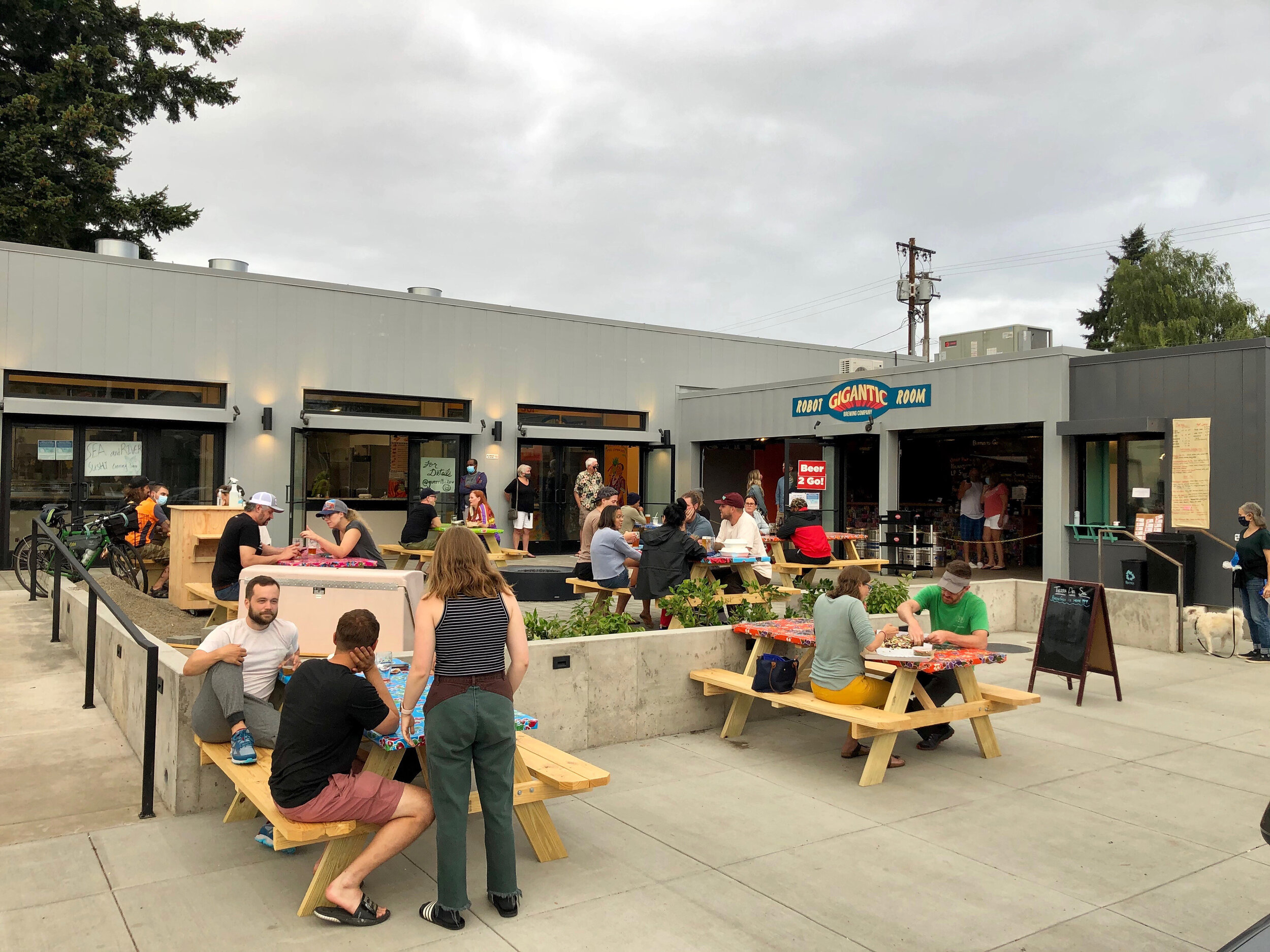


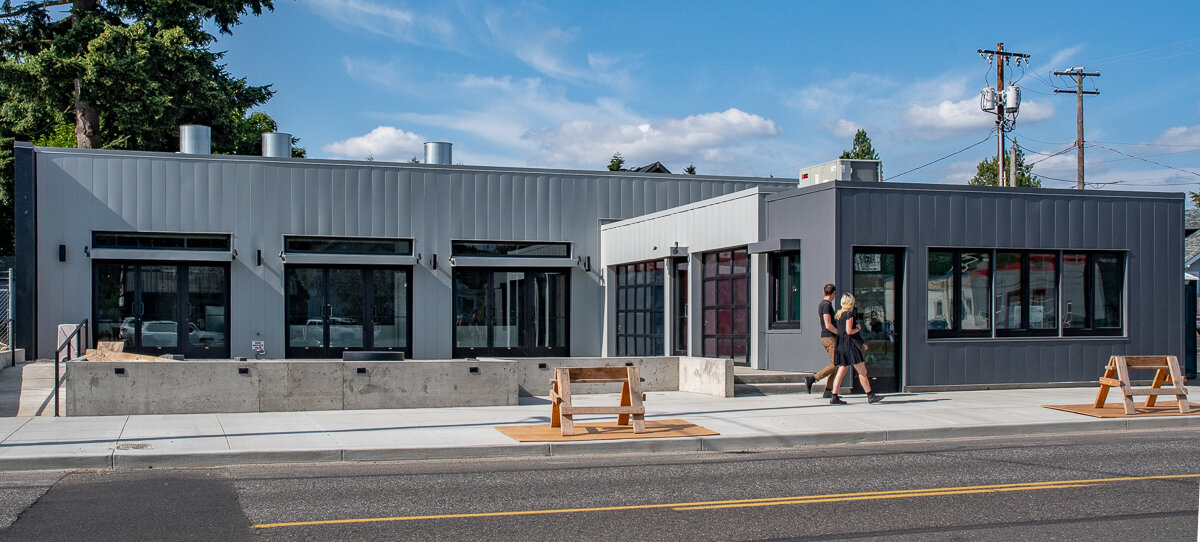
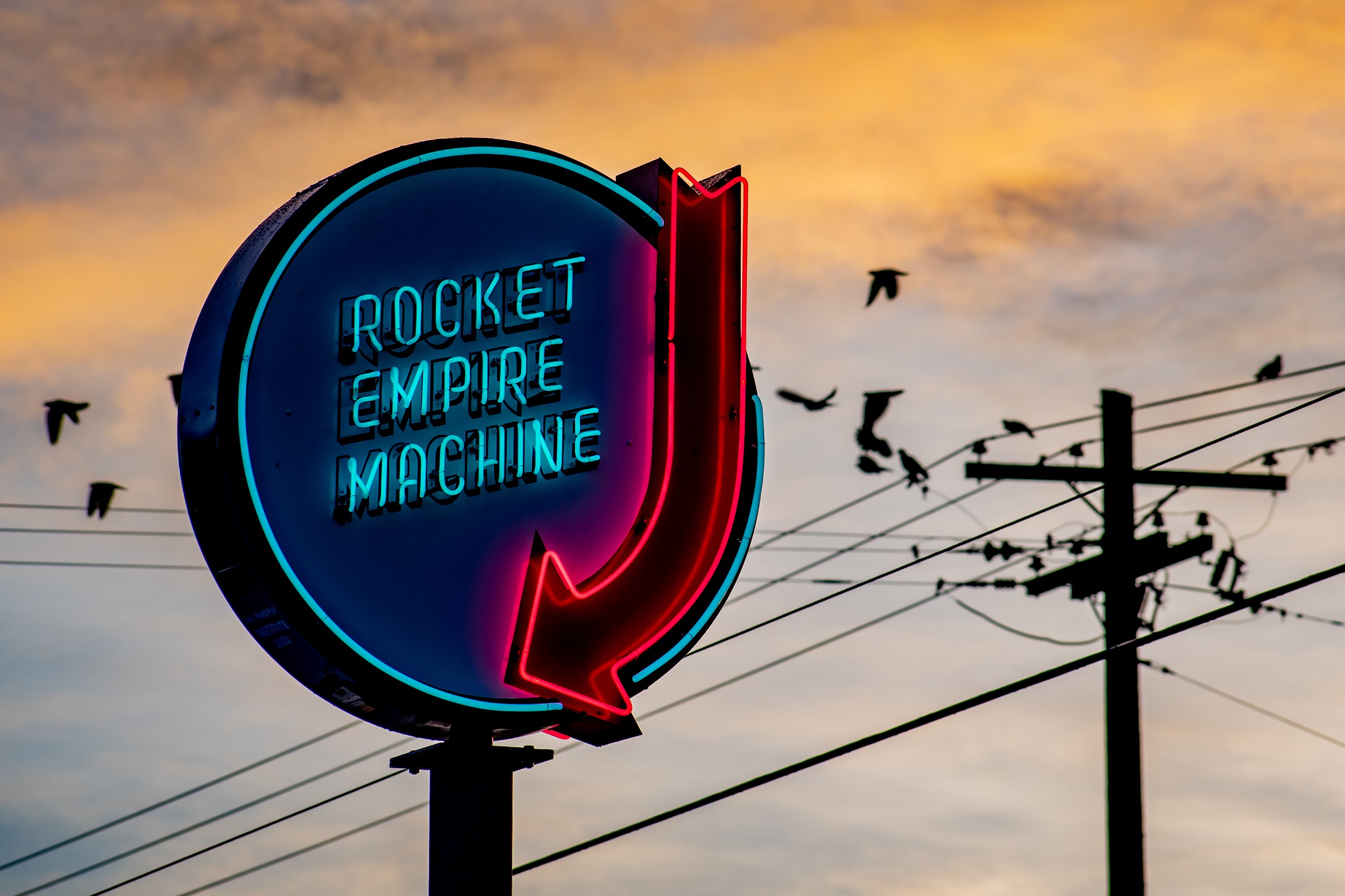
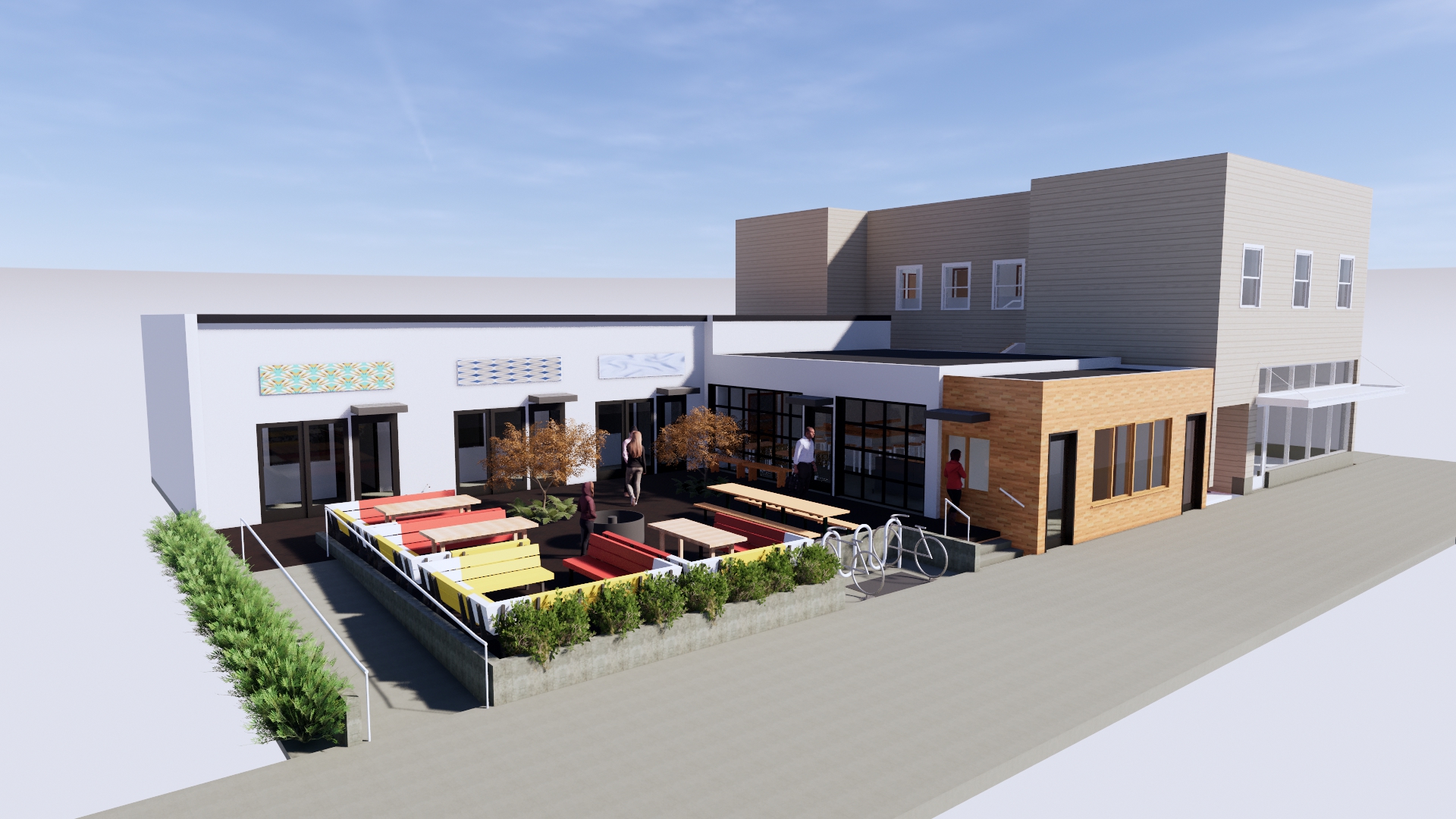
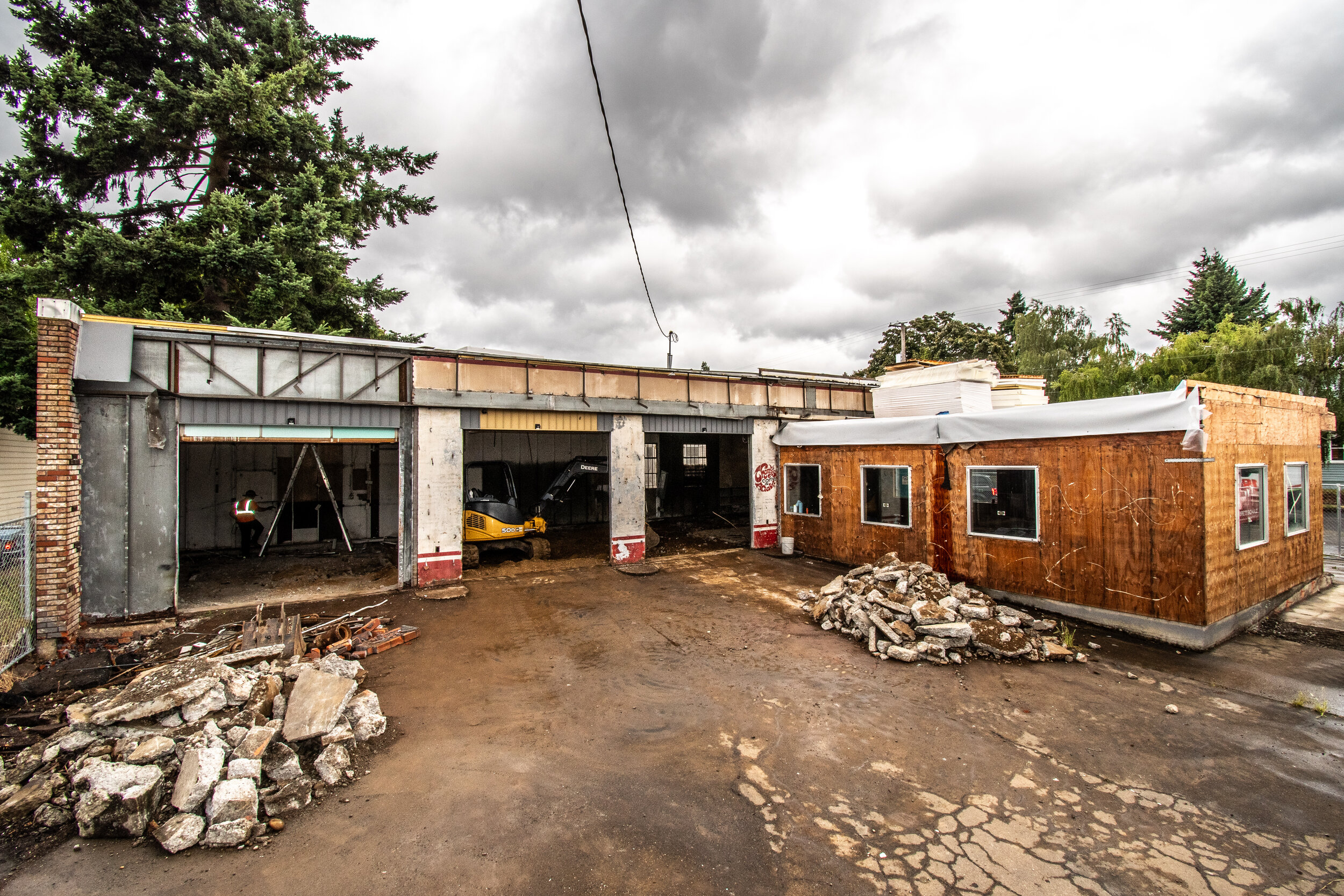
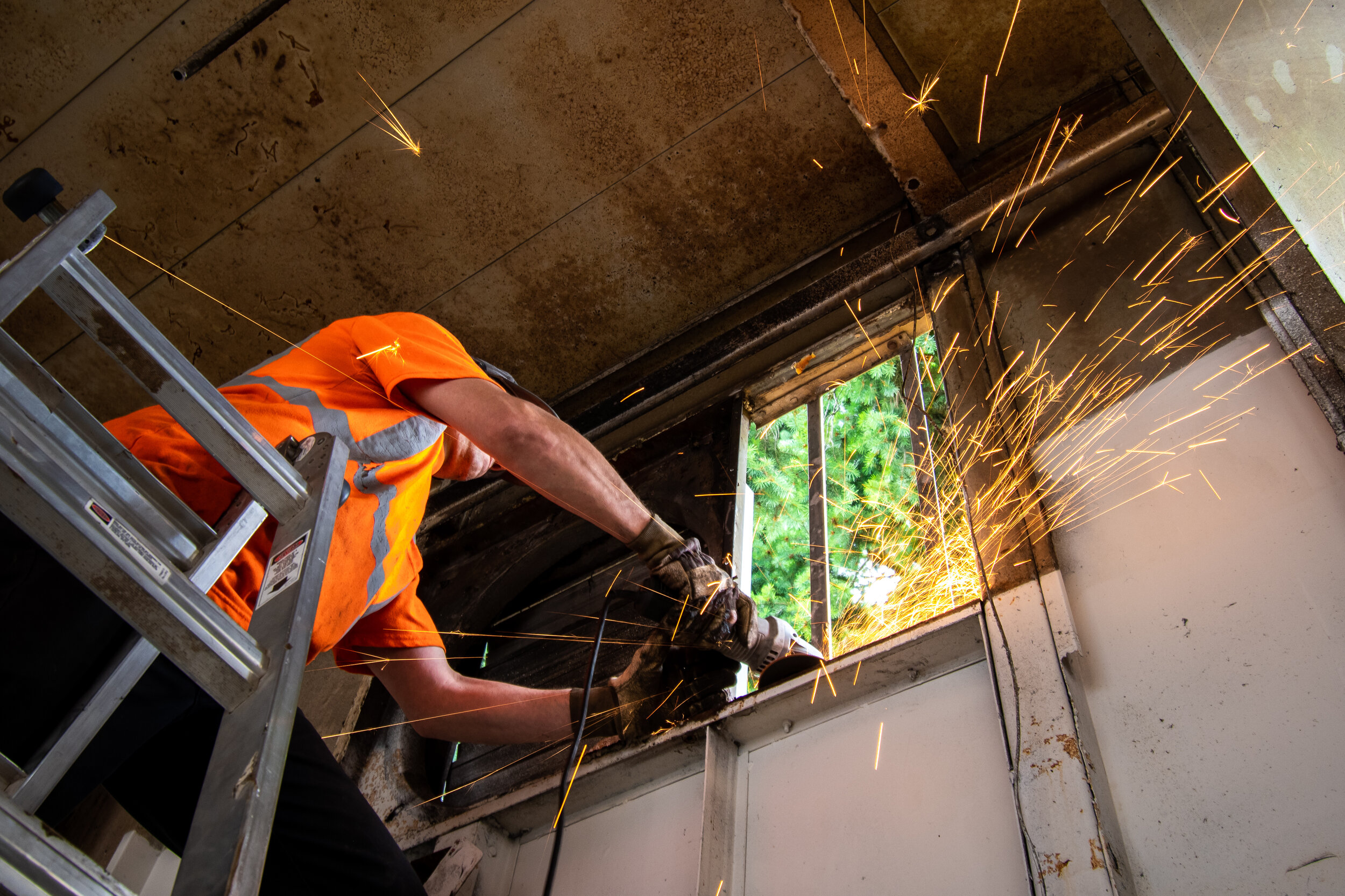
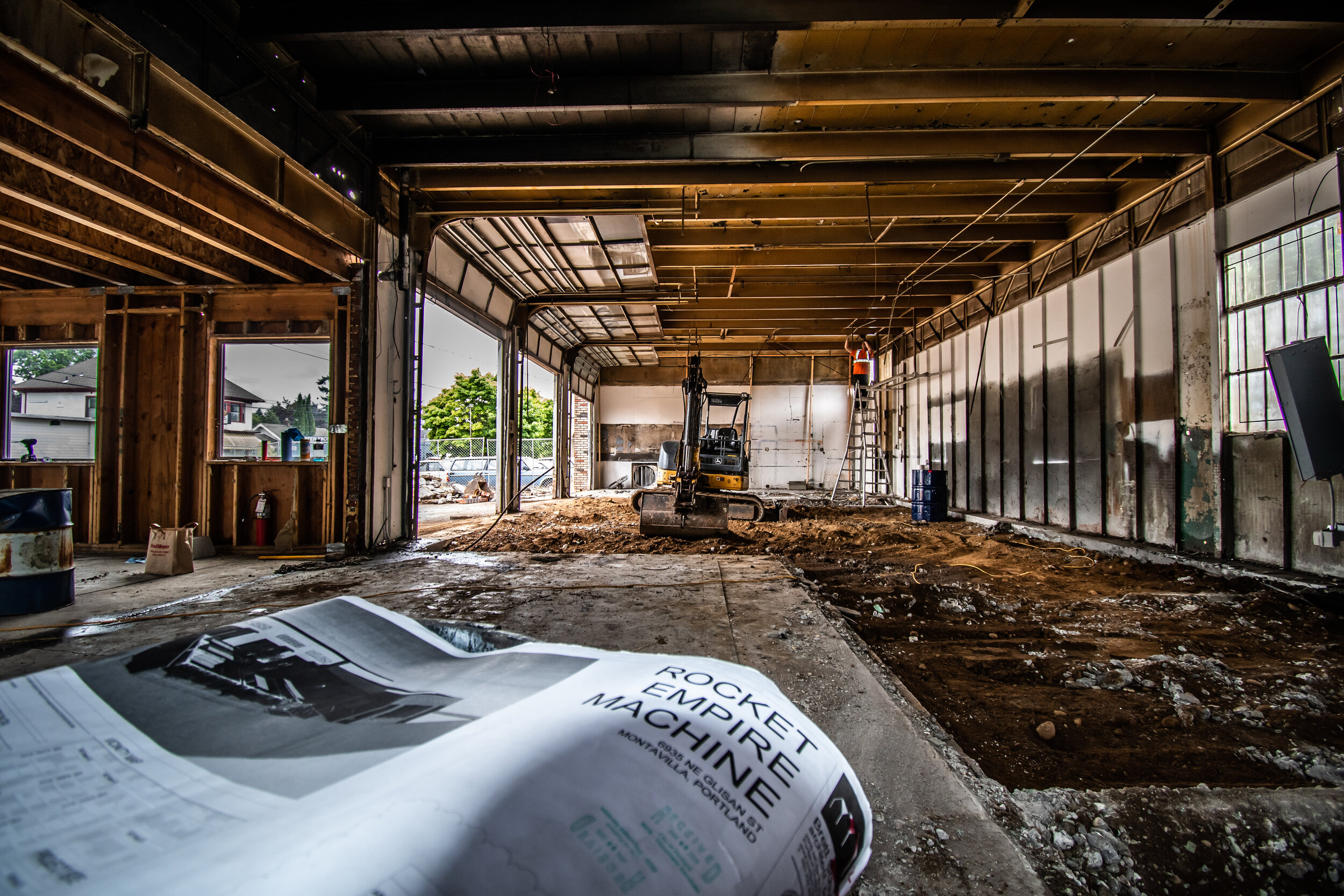
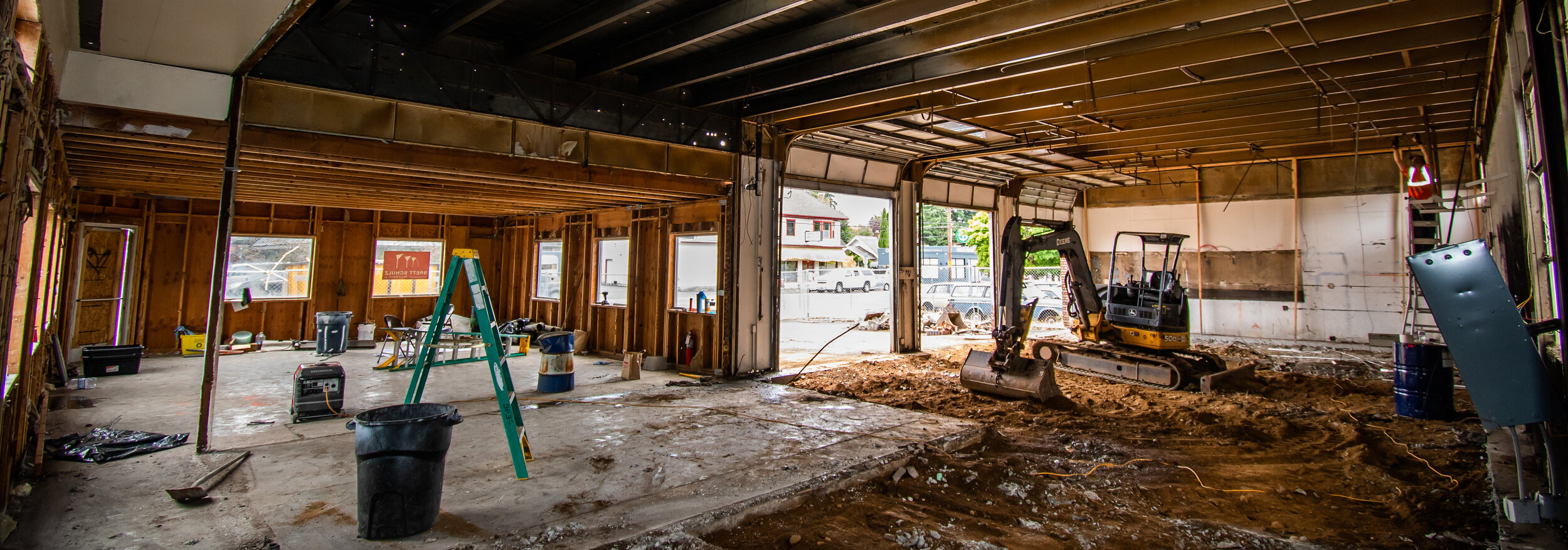
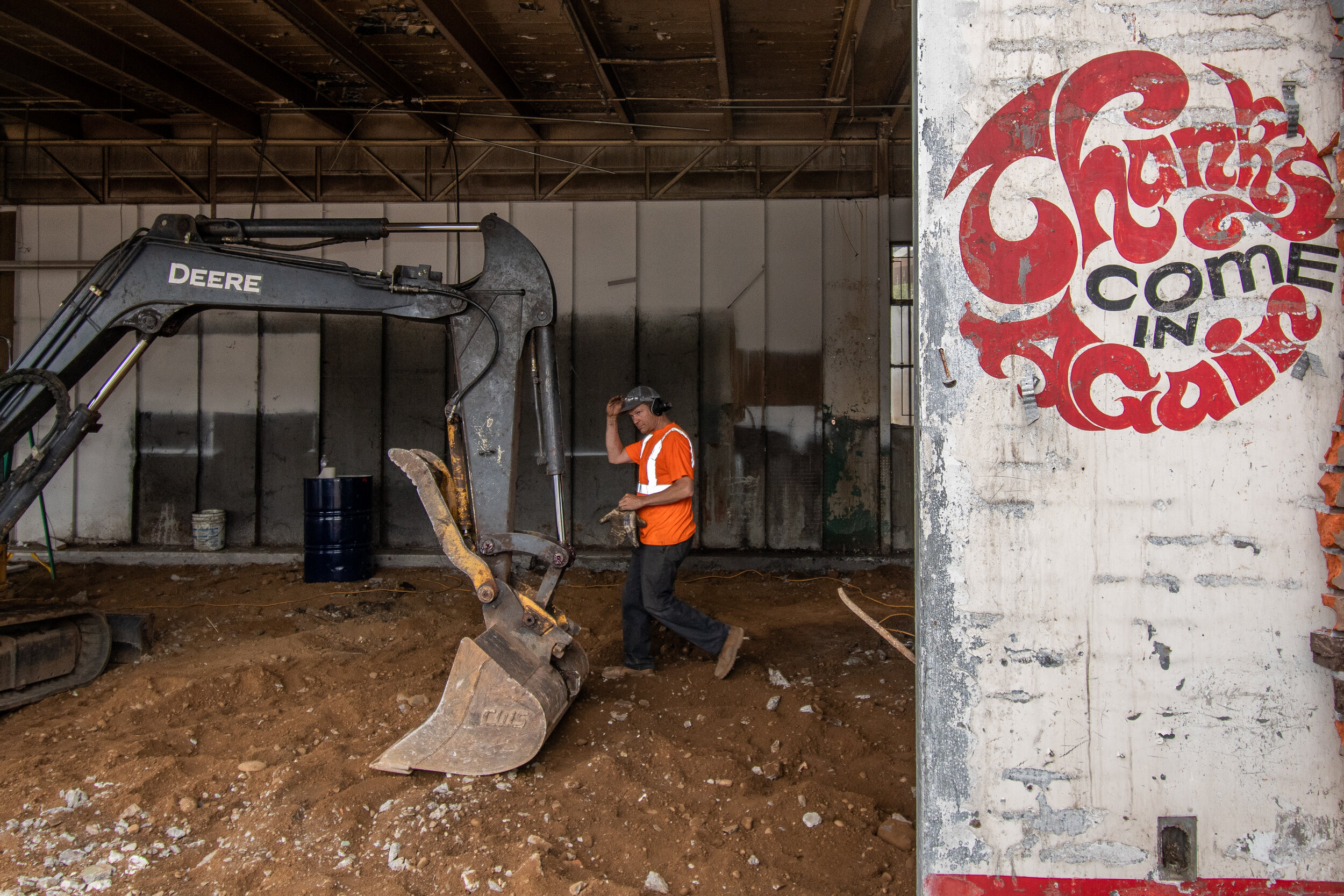
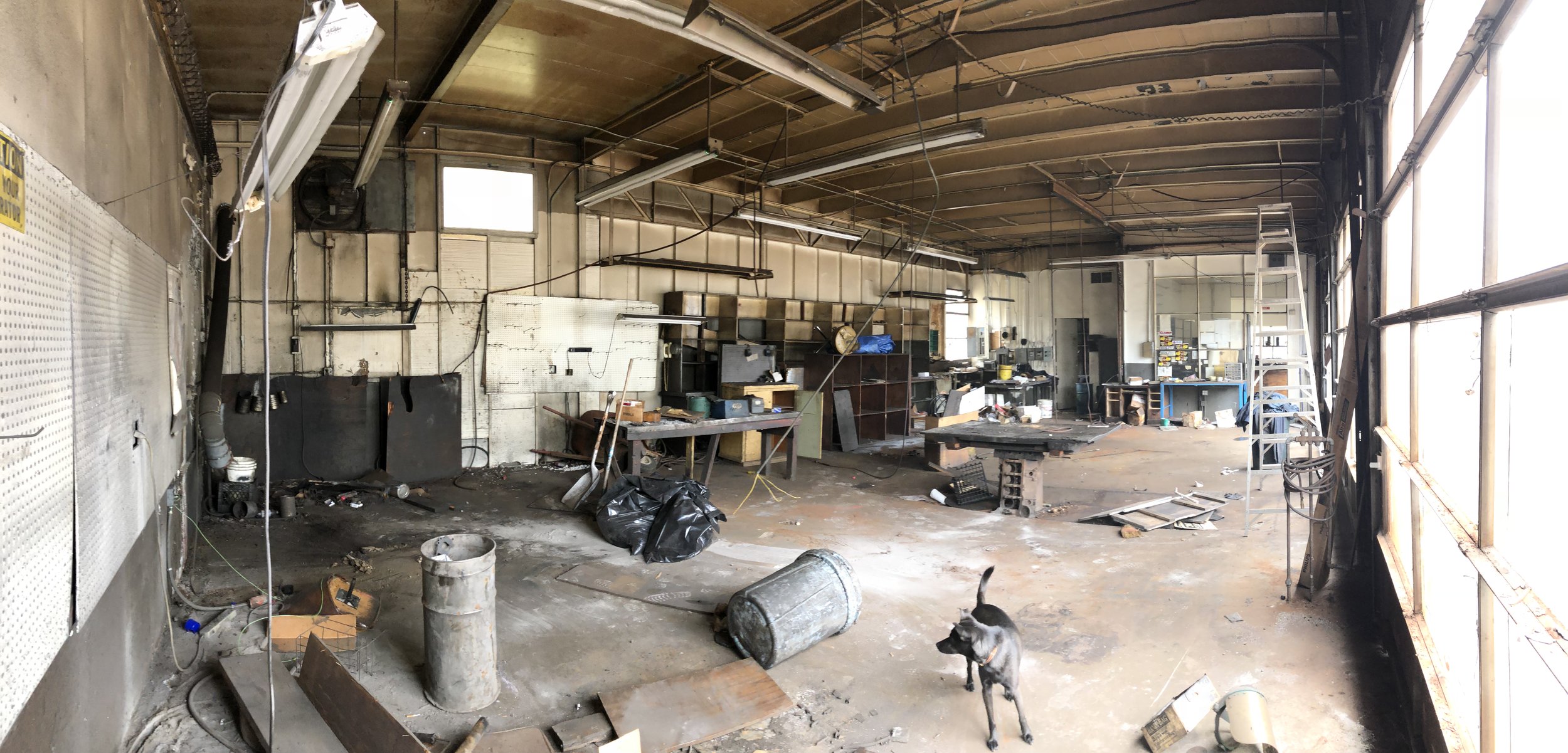
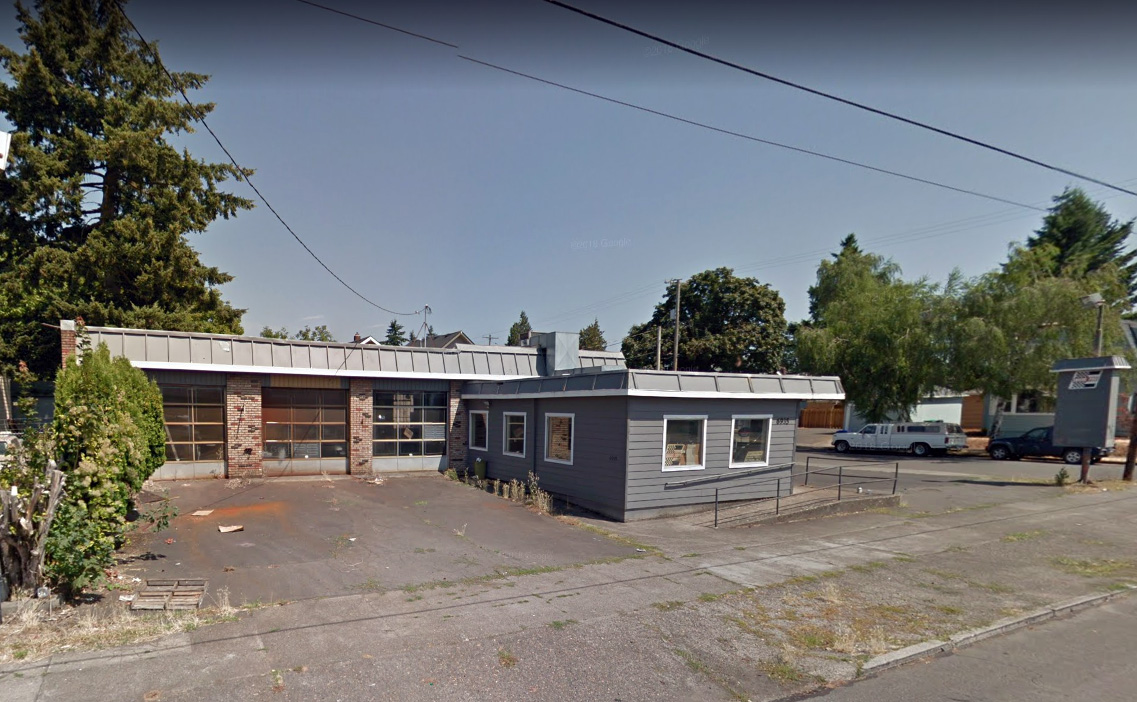
ROCKET EMPIRE MACHINE | COMPLETED AUGUST 2020
6935 NE Glisan
Portland, OR
Guerrilla Development and Sister City’s Rocket Empire Machine in Portland, Oregon pilots a new affordable retail model powered by internal rent subsidy, investor hold-back, and involvement from community groups. Our goal is to acknowledge and to alleviate the negative effects of commercial gentrification while fostering an environment for retail tenants to thrive and for community members to inclusively gather. We aim to accomplish this goal through the provision of a Non-Displacement Benefit to one of five incoming restaurant/bar tenants. The NDB holds monthly base rent at $999—a rate in keeping with the current market in the Montevilla neighborhood (see Exhibit A)—for the first three years of a five-year lease term before the monthly base rent rate rises to match those of the other four tenants in Year 4.
While the majority of research on gentrification has been conducted on residential displacement, it is no stretch to consider how rising rent prices and new consumer groups can and do threaten important third places in our communities. Rising rental rates associated with new waves of real estate development affect not only the availability of residential stock but also of commercial. As the churches and cafes frequented by historic demographics struggle and close as a response to rising rents, the collateral damage is subtle but insidious. The dwindling of services directed toward native populations beg the questions: Where do we conduct our business? Where do we gather with one another outside of our homes? Is this still our place?
While qualitative research is limited, anecdotal reports have shown that if “native retailers” can retain their leases through the first several years of a gentrification event, their net income can as much as double. With those rising residential rents come more dollars into the consumer market. A comparable model would be a conventional farm transitioning to organic – prior to the award of Organic Certification (and the associated premium on goods) farmers are required to run their operations at the USDA Organic Standard for three years, requiring serious financial planning and, in some ways, a leap of faith. As there are banking institutions that understand the conventional-to-organic trajectory and model underwriting to support farmers looking to do the right thing, native retailers need these same advocates. Finding ways to support retailers determined to remain in their neighborhoods through regeneration (with both its positive and negative effects) is a responsibility that falls on the real estate developers who are driving the engines of change.
Enter Rocket Empire Machine (REM).
PROJECT DETAILS
2,820 SF, single-story building on a ~5,000 SF site.
Built by GPGC.
Project Team:
Co- Developer: Sister City
Architect: Brett Schulz Architect, PC
Structural Engineer: BK Engineer
Project Financials:
PROJECT DOWNLOADS:
PLANS:











